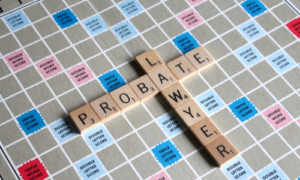 It can take a long time to get a Grant of Probate. But once probate has been granted, what happens next?
It can take a long time to get a Grant of Probate. But once probate has been granted, what happens next?
In short, armed with their new legal permission to do so, the executors of the will can start to administer the deceased’s estate.
To discuss any of our services, please either call us on 01244 917 822 or complete a Free Online Enquiry.
“We were quite happy with the service you provided. With being local, we were able to visit whenever necessary, which we appreciate, and all phone calls were dealt with by yourselves in a friendly and helpful manner.”
But what does that involve? Let’s take a look at some of the most Frequently Asked Questions about the often patience-testing probate process:
Why Do You Have To Wait Six Months After Probate?
There isn’t a set period of time that an executor has to wait before distributing the legacies in a will once probate has been granted.
That said, if you are a beneficiary waiting to receive your inheritance, it is worth understanding that there are several very good reasons why you might not get anything right away.
First of all, the executor will have to administer the estate before they distribute any legacies. This takes time, often involving as it does the need to:
1) Pay Off Debts
It’s not only the positive task of sending beneficiaries their gratefully received inheritance money or gifts that an executor has to handle.
If the deceased had any debts or liabilities, the executor needs to ensure that the estate pays these off first. This can include things like mortgage payments and utility bills.
The executor also needs to show they have done everything they can to locate potential creditors and give them the opportunity to make a claim on the estate for what they are owed.
There is a set process for this (including posting in the newspaper of record, The Gazette). These adverts need to be in place for a set period of time (namely, two months and a day).
It’s important for the executor that they do this properly. If it can later be shown they haven’t, they may be left on the line to pay those debts themselves.
2) Find All The Listed Beneficiaries
It’s not uncommon for some beneficiaries to drop out of touch with the deceased. Sometimes, contact details or addresses change and a beneficiary becomes unreachable.
So, what does the executor do? Once more, they have to demonstrate they have made reasonable efforts to try and locate the missing beneficiaries.
Again, there are mandatory adverts that need to be placed for a period of two months.
3) Handle Tax And Money Matters
It’s perhaps unsurprising that “administering” someone’s estate requires a good deal of administrative work. This can include:
- Filing Inheritance Tax, Capital Gains Tax, and sometimes Income Tax forms with HMRC
- Closing any bank accounts and possibly gathering the funds into an executor account
- Claiming on life insurance policies (if any)
4) Have The Estate (Including Any Property) Valued
It is important that the correct amount of Inheritance Tax is paid to HMRC. This requires an accurate valuation of the estate, including any property (such as the family home).
5) Make sure the will is unchallenged
If there is any risk of the will being challenged, it’s not uncommon for executors to play it safe.
This is because of a law called the Inheritance (Provision for Family and Dependants) Act 1975. This law gives certain parties the ability to make a claim against a will.
Only certain people – classified as “dependents” – can make this claim. They can only do so if they believe the will is unfair to them in some specific ways.
The Inheritance Act gives claimants six months to start making a claim and an extra four months to serve it. This can mean there is good reason for a ten-month delay after probate before beneficiaries receive their inheritance.
How Long After The Grant Of Probate Is Money Released?
If you are due a legacy or inheritance from the estate of someone who has died, this can be a stressful time – especially if you are counting on that money for some reason.
As we’ve seen above, there can be many sensible reasons why the executor of an estate might not release the money to the beneficiaries of a will right away. This isn’t always much consolation though.
If you really need your inheritance for something, it is possible to request what’s sometimes called an “interim payment”. This could tide you over in lieu of getting your inheritance just yet.
However, the executor isn’t obliged to let you and may well refuse. Especially if there is any question about the estate being able to pay all of its outstanding debts and other costs.
How Long After Probate Is Granted Can You Sell A House?
As soon as probate is granted, you can sell a house right away. You can even put a house on the market before you have received the Grant of Probate (you just can’t actually sell it).
Once Probate Has Been Granted, What Happens Next?
Get FREE initial advice on the probate process from our LEXCEL-accredited solicitors today. We are always glad to help take the stress out of the probate process for you at this difficult time.
You can also count on us to advise you if you are a beneficiary who believes there is some issue with how the executor is handling probate in your particular case.
Give us a call on 01244 917 822 or complete a Free Online Enquiry to arrange a no-obligation chat with our friendly and supportive team.
